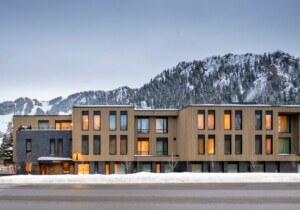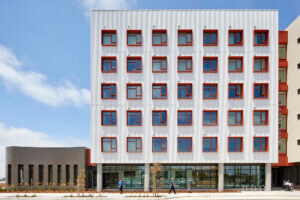A new initiative by Colorado Governor John Hickenlooper seeks to divert $16.3 million in tax revenue generated from the state’s legal marijuana trade toward creating permanently affordable housing units for homeless individuals in the state.
The Denver Post reports that the Governor’s plan would allocate $12.3 million in legal marijuana tax revenues to build 1,200 affordable housing units for chronically homeless individuals as well as 300 additional units for periodically homeless individuals over the next five years. Hickenlooper also proposes taking $4 million in funds to construct 354 assisted housing units that will be paired with behavioral health services facilities over the same time frame. The Governor’s budget proposal also features $2 million worth of incentives to generate 250 affordable housing units for senior citizens and individuals fighting displacement.
The Denver Post also reports that Colorado has seen a six-percent increase in homelessness this year, bringing the state’s unhoused population to 10,000, according to the United States Department of Housing and Urban Development. Meanwhile, the state’s total supply of year-round beds allocated to serve this population numbers less than 7,000.
Allocating tax revenues generated from the sales of legal marijuana toward housing services would require a change in the law which currently only allows for these funds to be spent on marijuana and addiction-related measures. It would introduce a new question to the legalized marijuana debate: If such revenues are no longer being spent directly on enforcement and substance abuse programs, then how might they be extended across various aspects of society?
The budget proposals come amid an increasing belief among state officials, according to Hickenlooper, that homelessness and the state’s legal marijuana trade go hand-in-hand. Backers of this theory believe that easier access to marijuana can exacerbate substance abuse problems among the population at large. The Colorado Springs Gazette reports Hickenlooper as saying, “We’re trying to make sure that the [marijuana] tax revenue is to a large extent, if we’re going to build affordable housing, is for people that had a drug problem. We’re trying to use the revenues for unintended consequences of drug use, especially legalization of marijuana.”
According to the governor’s budget office, state taxes on medical and recreational marijuana came to $134 million over the first nine months of 2016. Those funds are largely earmarked for enforcement, mental health, and substance abuse efforts in the state.










